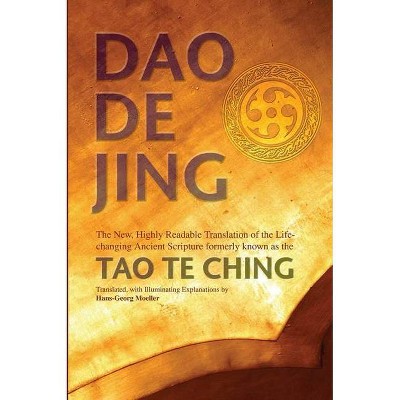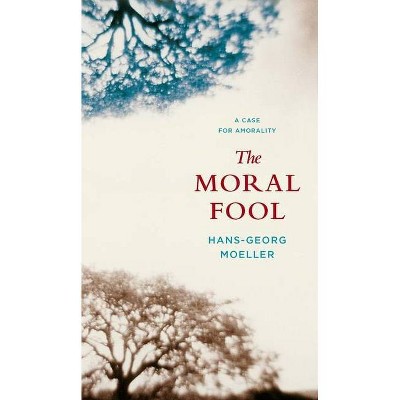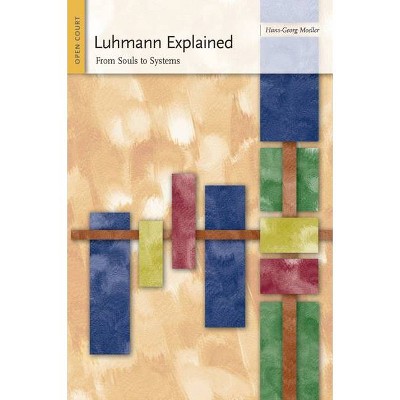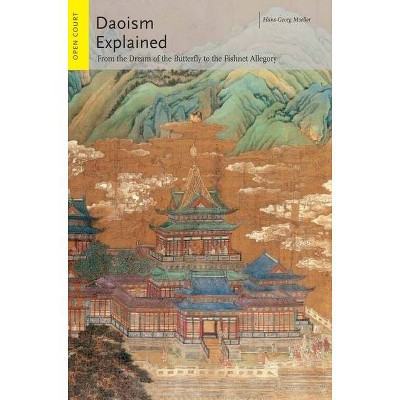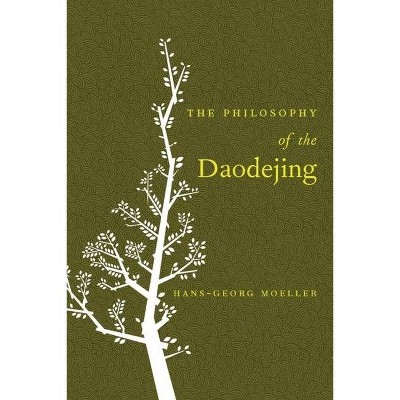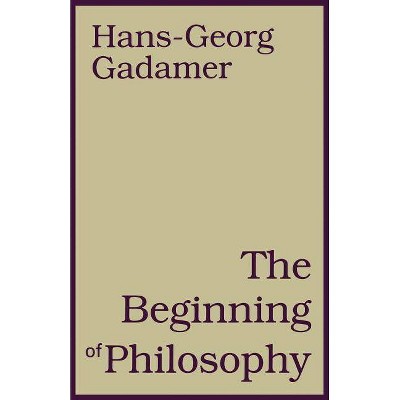Genuine Pretending - by Hans-Georg Moeller & Paul J D'Ambrosio (Paperback)
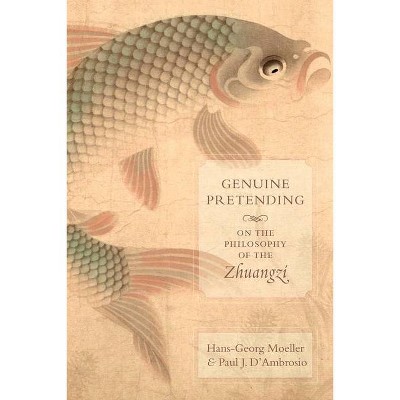
Similar Products
Products of same category from the store
AllProduct info
<p/><br></br><p><b> About the Book </b></p></br></br>This book presents an innovative reading of Daoist philosophy that highlights the critical and therapeutic functions of satire and humor. Moeller and D'Ambrosio show how the <i>Zhuangzi</i> expounds the Daoist art of "genuine pretending" the paradoxical skill of enacting social roles without submitting to them or letting them define one's identity.<p/><br></br><p><b> Book Synopsis </b></p></br></br><p><em>Genuine Pretending</em> is an innovative and comprehensive new reading of the <em>Zhuangzi</em> that highlights the critical and therapeutic functions of satire and humor. Hans-Georg Moeller and Paul J. D'Ambrosio show how this Daoist classic, contrary to contemporary philosophical readings, distances itself from the pursuit of authenticity and subverts the dominant Confucianism of its time through satirical allegories and ironical reflections.</p><p>With humor and parody, the <em>Zhuangzi</em> exposes the Confucian demand to commit to socially constructed norms as pretense and hypocrisy. The Confucian pursuit of sincerity establishes exemplary models that one is supposed to emulate. In contrast, the <em>Zhuangzi</em> parodies such venerated representations of wisdom and deconstructs the very notion of sagehood. Instead, it urges a playful, skillful, and unattached engagement with socially mandated duties and obligations. The <em>Zhuangzi</em> expounds the Daoist art of what Moeller and D'Ambrosio call "genuine pretending" the paradoxical skill of not only surviving but thriving by enacting social roles without being tricked into submitting to them or letting them define one's identity. A provocative rereading of a Chinese philosophical classic, <em>Genuine Pretending </em>also suggests the value of a Daoist outlook today as a way of seeking existential sanity in an age of mass media's paradoxical quest for originality.</p><p/><br></br><p><b> Review Quotes </b></p></br></br><br>Hans-Georg Moeller and Paul J. D'Ambrosio have crafted and presented a truly innovative and refreshing take on Zhuangist thought and narrative technique.--Journal of Chinese Religions<br><br>Moeller and D'Ambrosio's delightful work will be of interest to anyone interested in learning more about Daoist thought, and the <i>Zhuangzi </i>in particular. A light-hearted work that is expertly researched, <i>Genuine Pretending</i> allows us to saunter amongst its pages as easily as its authors hop and skip through the <i>Zhuangzi</i>. . . . <i>Genuine Pretending</i> succeeds in expanding the methodological approaches to reading this most difficult text. A laudable effort indeed!--Reading Religion<br><br>This is a book with which serious students of Daoist philosophy will need to grapple. "Grapple," perhaps, is not the right word, for the book is written in a clear, buoyant style.--David Cooper "Los Angeles Review of Books "<br><br>An exemplary work of scholarly exegesis, and an unquestionably significant contribution to Zhuangzi studies worldwide. . . . I highly recommend it to those interested in ancient Chinese philosophy, comparative philosophy and urging for a brand new (and maybe sometimes antitraditional) interpretation.--Guo Chen "Monumenta Serica "<br><br>This book presents a novel reading of the <i>Zhuangzi</i> that illuminates its humor and presents it as responding to philosophical concerns of its day. To the extent that these philosophical concerns are also those of the present day -- the search for a sane and healthy response to the impossible demands of sincerity -- we can, through the discussion here, gain an understanding of an alternative to the unsatisfying ethical approaches of both sincerity and authenticity. . . . This book is one to which I will return for its insights into the <i>Zhuangzi</i> and its place in traditional and contemporary thought.--Susan Blake "Notre Dame Philosophical Reviews "<br><br><i>Genuine Pretending </i>is one of the best books, if not <i>the </i>best book, on the <i>Zhuangzi</i>, since A.C. Graham's analysis of the text in <i>Reason and Spontaneity</i>. The book restores humor to the <i>Zhuangzi</i>. It moreover liberates whole <i>Zhuangzi </i>passages from dense thickets of Buddhist, Christian, and Freudian interpretations. And while I suspect that some of the dividing lines between Confucians and Daoists that <i>Genuine Pretending</i> draws were rather less clear in early China, <i>Genuine Pretending </i>surely constitutes a firmer basis for vigorous debate for years to come.--Michael Nylan, editor of <i>The Norton Critical Edition of "The Analects"</i><br><br>[The book's] scholarship is first rate and the contribution original and timely. The authors offer genuinely illuminating and original readings of many of the widely discussed parts of the <i>Zhuangzi</i>.--Barry Allen, author of <i>Striking Beauty: A Philosophical Look at the Asian Martial Arts</i><br><br>A highly insightful new reading of the <i>Zhuangzi</i> that is exceptionally sensitive to both philosophical and textual subtleties, highlighting the key theme of genuine pretending--the adoption of multiple roles while maintaining a form of radical flexibility that prevents full identification, thereby allowing all roles to be at once fulfilled and transcended.--Brook Ziporyn, author of <i>Emptiness and Omnipresence: An Essential Introduction to Tiantai Buddhism</i><br><br>Without ignoring the many and varied eccentricities found throughout the composite text of the <i>Zhuangzi, </i>D'Ambrosio and Moeller have presented an appropriately contextualized whole that is text-sensitive, highly original, and deeply incisive, satisfying for readers lay and expert alike. It is a new benchmark for the field.--Henry Rosemont, author of <i>Against Individualism: A Confucian Rethinking of the Foundations of Morality, Politics, Family, and Religion</i><br><p/><br></br><p><b> About the Author </b></p></br></br>Hans-Georg Moeller is professor of philosophy at the University of Macau. His books include <i>The Philosophy of the Daodejing</i> (2006); <i>The Moral Fool: A Case for Amorality </i>(2009); and <i>The Radical Luhmann</i> (2011), all from Columbia University Press. <p/>Paul J. D'Ambrosio is assistant professor of Chinese philosophy at East China Normal University, where he serves as dean of the Center for Intercultural Research, Teaching, and Translation. He is the coeditor (with Michael Sandel) of <i>Encountering China: </i><i>Michael Sandel and Chinese Philosophy</i> (2017).
Price History
Cheapest price in the interval: 37 on November 8, 2021
Most expensive price in the interval: 37 on December 20, 2021
Price Archive shows prices from various stores, lets you see history and find the cheapest. There is no actual sale on the website. For all support, inquiry and suggestion messages communication@pricearchive.us

